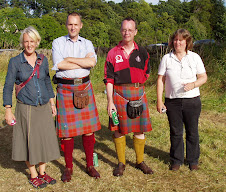I wonder if I have met an unwinnable Freecell? How I
wish there were a way to save it, and forward it to you, and keep it for my
sister and/or Alexander (who are both very clever), and Google for a solution –
and thus set me free to go on wasting my time. But I fear I’m beaten.
Here, at last, my Polliwog, progressing slowly but
happily. Soon I will embark on some interesting short rows. The whole point of
this pattern is that it is meant to slip easily over a baby’s head (and I’m
sure it will). Not a matinee jacket, anyway. I'm very pleased with it.
Ella Gordon has posted a
new blogpost – always a welcome event. And in her discussion of Whalsay
knitting, she illustrates two items from the ‘30’s (I can’t see, and she doesn’t
say, what the “items” are) with different motifs as one proceeds along the row –
just like the Museum Sweater!
I am continuing to watch Andrew & Andrea
systematically. We had an interesting episode recently, No. 6, with an
interview with a natural dyer. I’ve done a bit of that myself, in my day.
It is interesting how everybody, world-wide and
throughout history, seems to converge on wanting red. It must be something to
do with the construction of the human eye. Or not necessarily human, considering
how the birds will strip my red currant bush if not netted, but leave the white
currants which taste very similar.
During my own dye phase, I found some ochrolechia
tartarea above the Croft of Cultalonie, (rather proud of myself, for that),
and from it dyed some yarn purple and
other yarn a rather convincing red. To turn it red, I had to macerate the lichen for
a while. Urine is recommended. I made do with vinegar.
But it is interesting how humble people whose lives
must have been rather difficult, took the time and trouble to discover the
properties of ochrolechia tartarea, while the more leisured derived their reds
from more exotic sources.
There is a famous passage in Virgil’s Fourth Eclogue –
the “Messianic Eclogue” – in which he imagines the sheep in the age-to-come
wandering about the fields all red and gold and purple already. Virgil has been
rightly censured for being ridiculous. But the commentators I have seen (the
English language ones only) have rather missed the point, I feel. He doesn’t use the
normal Latin colour-words here, but rather the names of the expensive dyes of
his day, crocus (=saffron), murex, sandyx. That’s what we’ll be able to do
without, he is saying, when the Red Revolution comes.




Your work on Fair Isle inspired me. I started a vest for my husband a couple years ago that has been sitting neglected because I didn't like the colors I had chosen but didn't know why. After reading your attempts I realized all the colors were too dark. I pulled out my stash bag of that particular yarn brand and started substituting other colors until I found some I liked better and went to start knitting. I then recognized the name of the designer of the vest - Susan Crawford and her Wartime Farm Sleeveless Pullover. I don't think I knew who she was before reading your blog. Such are the small connections of life.
ReplyDeleteLove the Polliwog colors. So "you" and to my eye so Scotland. Very relieved you used vinegar. As it is I don't know if I can ever see red in the same way again.:-). For me red is the easiest way to give life to a color-scheme although recently I have seen yellow do the same thing. Chloe
ReplyDeleteSorry. One more point about color popularity. Years (decades) ago I read that from a retail fashion point of view it was "always a blue year." Wonder if that still holds true, and why don't I see more blue on Ravelry?
ReplyDeleteSorry. One more point about color popularity. Years (decades) ago I read that from a retail fashion point of view it was "always a blue year." Wonder if that still holds true, and why don't I see more blue on Ravelry?
ReplyDeletelove the Virgil comment.
ReplyDeleteDo you have the number of the unwinnable Freecell?!
Sorry I'm not able to delete duplicates, Chloe
ReplyDeleteWhat a wonderful bit from Virgil. And Polliwog is looking good! Will you remind us of the yarn you are using? I like the colors.
ReplyDeleteI've looked really closely at Ella's post - but I can't see any items with different motifs along the horizontal bands. Nor are there any in her collection of vintage knits.
ReplyDeleteWhat the Museum sweater reminds me of most is that famous quilt, called the "Dear Jane", where there are hundreds of four inch quilt blocks, all of them different.
Ella says she found "two fair isle ganseys". Hope she posts some photos soon!
ReplyDeleteLisaRR